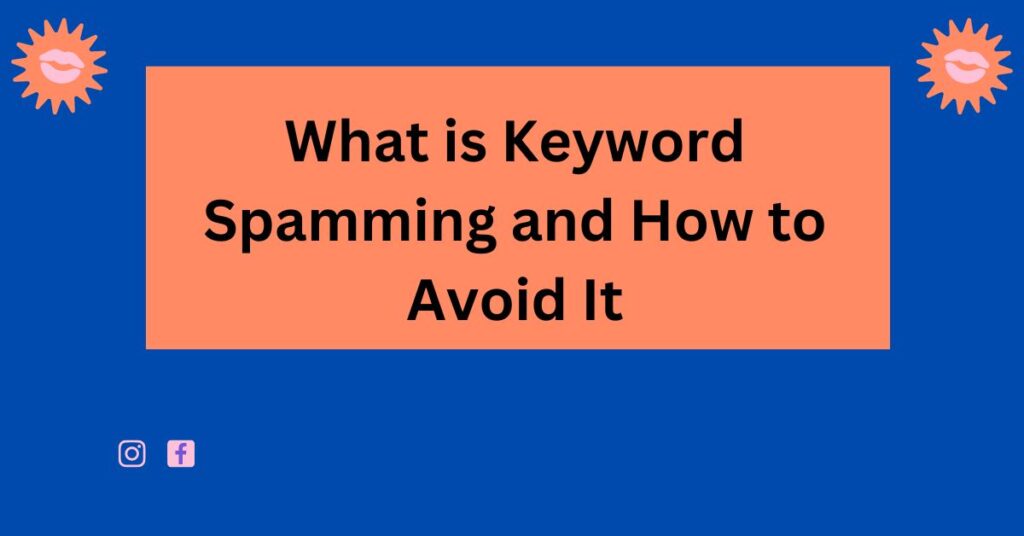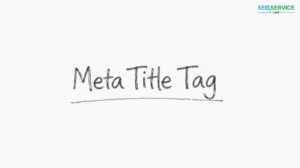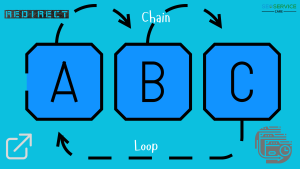What Is Keyword Spamming? It is all about overusing keywords within content to affect rankings on search engines. SEO success can only be achieved by understanding this practice because it can affect rankings and credibility. This piece will familiarize you with Keyword Spamming so that you can apply organic keywords efficiently to enhance organic traffic to your website by getting more visitors.
What is Keyword Spamming?
Keyword spamming, also known as keyword stuffing, is a search engine optimization (SEO) technique in which web pages contain too many unrelated keywords to affect a site’s rank in search engines.
What is keyword spamming? It includes excessive use of keywords, non-relevant keywords, and hiding the words in the background. These manipulative practices can get a website penalized by search engines.
Examples of keyword spamming include unnatural repetitions of one keyword in text, white text on a white background used to hide some keywords, and stuffing meta tags with excessive keywords. Such tactics hurt user experience and trust.
History and Evolution
At the start of the keyword stuffing era, website owners would overuse keywords to manipulate search engine results. This initially worked well because the early search algorithms were simple and relied heavily on keywords.
Search engines have changed their algorithms in response to keyword spamming. Thus, modern algorithms penalize keyword spamming but reward sites that offer valuable content to users.
Why is Keyword Spamming Bad for SEO?
Keyword spamming, which involves the excessive use of keywords unnaturally in a text, has several negative implications for SEO.
In other words, search engines penalize such initiatives since they prioritize user experience. Content that overuses keywords becomes less readable and informative, thereby frustrating users who are looking for valuable information.
These results in higher bounce rates and lower engagement, leading to poor SEO rankings. Additionally, keyword stuffing is against search engine guidelines, which could result in penalties like dropped rankings or even delisting from the search results.
Modern SEO cares more about relevance and quality than just keyword density.
Accordingly, websites can boost user satisfaction and enhance their organic SEO performance correspondingly by shifting their focus to offering real value through well-constructed content with naturally placed key phrases.
Hence, avoiding keyword spamming ensures sustainable SEO strategies aligned with search engine algorithms and user expectations.
Common Signs of Keyword Spamming
Keyword spamming can be identified through several common signs that indicate manipulative SEO practices:
-
Unnatural Keyword Density: Awkwardly worded content with unnaturally high keyword density is clear evidence of the fact that such an article was written by someone who wants to rank highly on search engines rather than appeal to humans. The repetition of keywords fits poorly into the text because they are forced in for SEO purposes.
-
Keyword Stuffing in Meta Tags and Alt Texts: While meta tags (such as meta descriptions and title tags) and alt texts for images are very important for SEO, excessive keyword use may lead to negative results. When many keywords are utilized, these elements may mislead users and search engines, as they do not reflect the actual content or image.
The ability to distinguish these manifestations by search engines helps them differentiate between high-quality, relevant content and content designed to manipulate their rankings via keyword spamming.
Websites that provide useful information naturally incorporate keywords without sacrificing user experience, thus adopting sustainable SEO practices over time.
Tools and Techniques
Combining several strategies and tools is the best way to enhance the detection of keyword spamming.
-
SEO Tools for Detecting Keyword Spamming: These tools, such as Ahrefs, SEMrush, or Moz, have features that enable people to analyze keyword density, keyword stuffing and other SEO metrics. They can identify places where keywords are repeated unnaturally or content quality is affected by flooding with words.
These also reveal how keywords are being used within various page elements and potential problems that may negatively impact SEO performance.
-
Manual Checks and Editorial Reviews: Besides automated tools, manual checks by SEO experts and editorial reviews by content specialists are important. This includes reading through the content properly to ascertain the fluency of keywords while maintaining readability and user experience.
Editorial reviews also highlight best practices in relation to SEO and guarantee that meta tags, alt texts, and other elements have been duly optimized without stuffing them with keywords.
Best Practices to Avoid Keyword Spamming
Choosing Relevant Keywords:
-
Pick the keywords directly associated with your content’s theme and widely searched by the intended audience.
-
For this purpose, use tools like Google Keyword Planner, Ahrefs, or SEMrush to determine relevant keywords with a reasonable search volume.
-
Focus on keywords that align with your content’s objective and will attract the right visitors to your website.
Importance of Long-Tail Keywords: Use long phrases with specific words, called long-tail keywords. These are longer and more detailed than regular keywords. Even though not as many people search for them, they often help find exactly what people want.
By using these special long phrases, you can get the right people to visit your website. You also have a better chance of being found in searches because fewer websites use these exact phrases.
Writing Natural Content
Seamless Integration of Keywords: Instead of forcefully placing keywords within a text, they should be integrated naturally and flow smoothly. Ensure you use synonyms or words that mean the same thing as their context requires. Put them strategically in titles and headings throughout your piece so they fit properly and improve readability. This will also help boost your SEO ranking and make the article more interesting.
Focus on User Intent: Understand what people who make these searches intend with their keywords. When you write, try to answer questions like how to fix something or where to find something related to your topic. This way, you help people find what they need. By understanding what people are looking for and giving them the right answers, your writing will make them happy and interested. This means more people will read and enjoy your content.
Alternative SEO Strategies
-
Using Synonyms and Related Terms: Instead of relying solely on exact keywords, you should ensure that synonyms and related terms are naturally incorporated throughout your content. Consequently, your content expands the range of keywords that can be ranked for, and different search queries are caught. This way, SEO is improved because keyword usage gets diversified, yet the content becomes more readable and informative.
-
Implementing LSI (Latent Semantic Indexing): Search engines use this to analyze how terms and concepts relate to a text. Let search engines understand the depth and breadth of relevance in your subject matter by including semantically related keywords and phrases that make sense within the context of your main topic area. This will help you better grasp what your content is about, leading to increased rankings in searches.
Using synonyms, related terms, or an LSI method while creating content can make it richer in meaning and, therefore, improve its visibility on search engine results pages (SERP).
Moreover, SEO strategies also promote user experience as they provide exhaustive insights into the subject being discussed, thereby supporting the query-oriented behavior of users on internet resources.
Benefits of Avoiding Keyword Spamming
Improved Organic Rankings
Getting better positions in search results helps websites in many ways. First, it makes sure your site shows up when people search for important words.
When your site is easy to find, more people will click on it and visit. This helps more people know about your brand and can bring in new customers.
Being high in search results also shows that your site is important and trustworthy. People trust sites that come up first because they think those sites have the best information or products.
In the end, better search positions bring more visitors and help your site grow and stay ahead in the online world.
Enhanced User Experience
To make a website better, you should put useful content on it. This keeps visitors interested and helps them stay on the site longer. When people stay on a site and look at more pages, it means they found what they were looking for and want to explore more.
When visitors spend more time on a site and check out more pages, it shows they like the content. This helps the site get a higher ranking in search results and makes visitors happier.
By giving visitors what they want and making the site easy to use, websites can keep people coming back and help the site show up better in search results.
Long-Term SEO Success
Avoiding keyword spamming assures long-term SEO success through continued growth in organic traffic. By concentrating on useful and pertinent posts, websites gain respect from both search engines and users.
This is a good tactic for building a strong SEO foundation to boost visibility, thereby attracting the desired audience.
Additionally, eliminating keyword spamming maintains the website’s niche authority and integrity. Businesses may bond with their customers by focusing on user experience and content quality.
Thus, it promotes better placement in search engines as well as consistent natural traffic generation over time, contributing to the holistic efficacy of digital marketing efforts.
Conclusion
It is essential to understand the spamming of keywords for search engine optimization (SEO) integrity and sustainable growth. A strong SEO foundation can be achieved by avoiding keyword-stuffing practices and focusing on quality content.
This ensures better organic traffic and rankings, which are important for achieving long-term success in digital marketing. Always stay committed to giving valuable content to your website that will enhance user experience and credibility, ultimately driving meaningful results.
FAQ:
What does keyword spamming mean exactly?
Keyword spamming is stuffing web pages with excessive keywords or employing them in irrelevant context to game search engine rankings.
How can keyword spamming regarding SEO hurt my website?
Keyword spamming may result in search engine penalties that cause a decrease in ranking or even removal from search results. It also diminishes user experience by making content less readable and relevant.
Are there any tools I can use to detect keyword spamming?
Yes, tools such as Ahrefs, SEMrush, and Moz offer options for checking the density of keywords, marking out their stuffing, and giving tips on improving your content.
What is a good keyword density to target?
While writing content, you should maintain a natural keyword density to fit well within the context. There isn’t a specific number, but generally, it means using them organically and focusing more on quality than quantity.
Can I ever recover from a penalty for keyword stuffing?
Yes, websites can recover by removing excessive keywording, producing better content, and observing search engines’ guidelines. This may not be easy, but strategic SEO practices will make recovery possible if done properly.
How can I select the right keywords for my content?
Pick keywords related to your topic and relevant to the search intent of your target audience. Use keyword research tools to find terms with moderate to high search volume but low competition.
What are long-tail keywords, and why are they important?
They are specific phrases targeted to a niche audience, which often get fewer searches but hold a higher conversion rate as they exactly match particular user intents and are less competitive.
How does avoiding keyword spamming benefit my website in the long run?
It ensures that you practice sustainable SEO behavior, enhances user experience, and sustains good standing with search engines, which can eventually assist in generating more organic traffic and boosting ranks over time.






